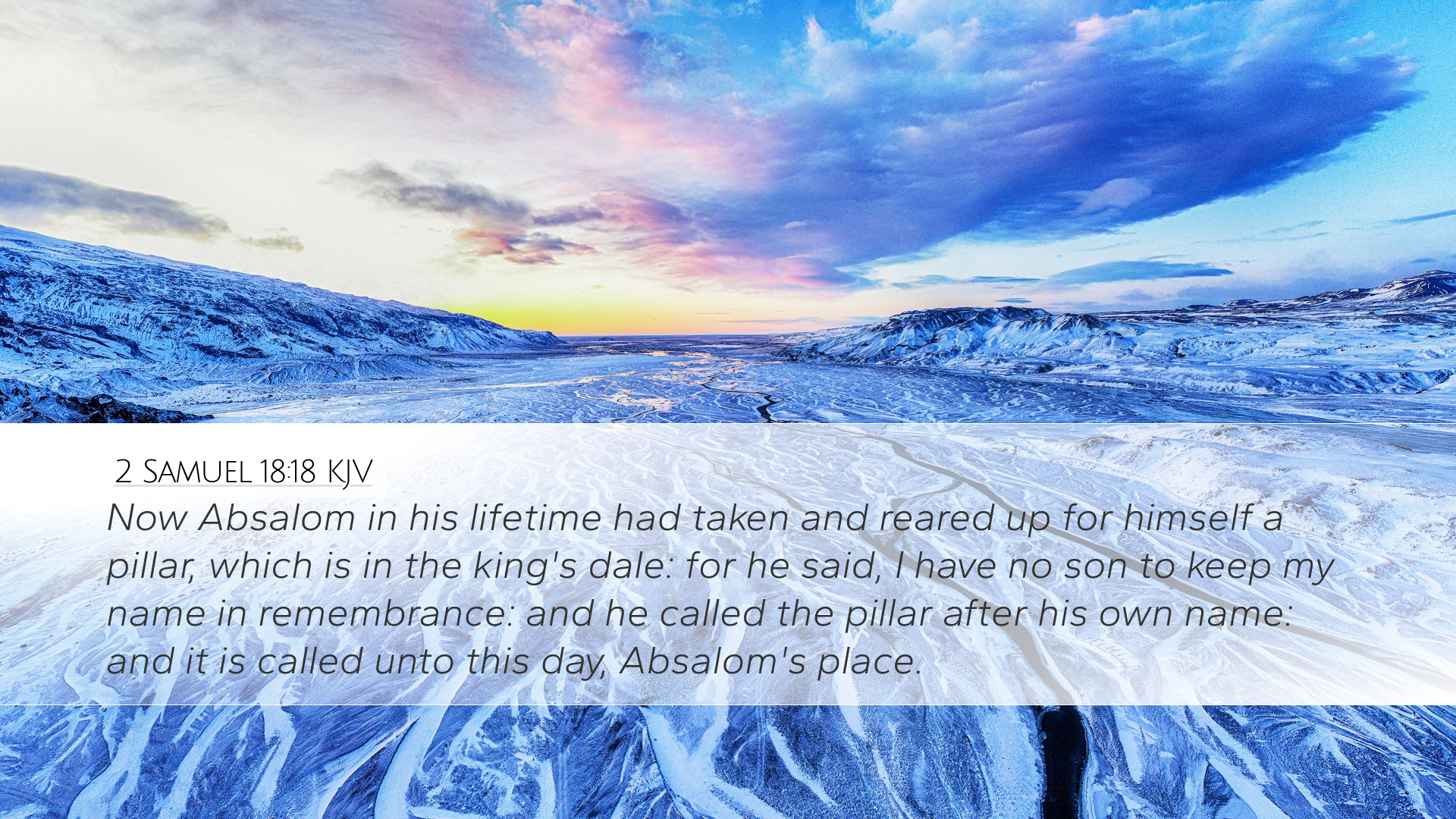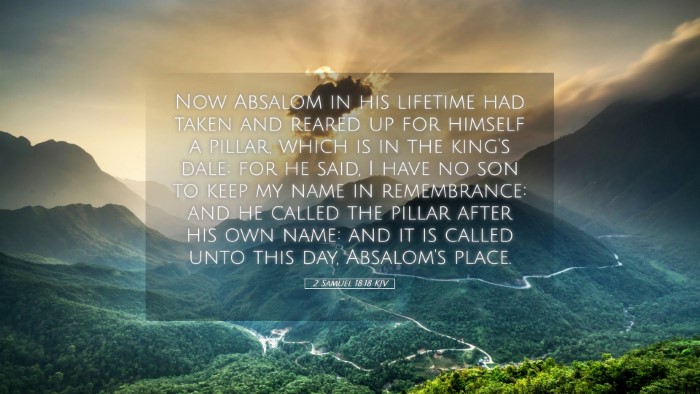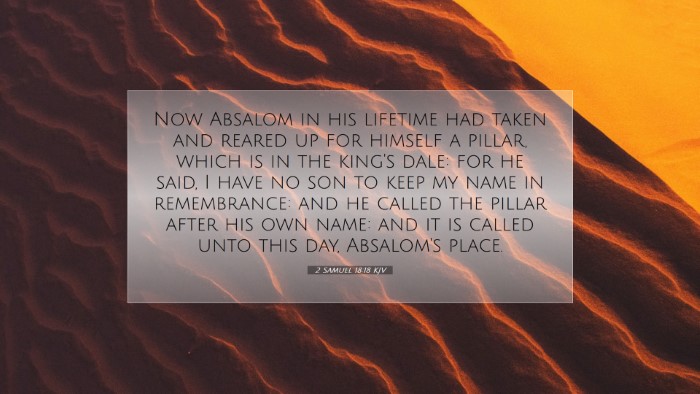Commentary on 2 Samuel 18:18
Verse Context: 2 Samuel 18:18 states, "Now Absalom, in his lifetime, had taken and set up for himself a pillar which is in the King’s Valley; for he said, ‘I have no son to keep my name in remembrance.’ He named the pillar after his own name, and it is called Absalom’s Monument to this day."
Overview
This verse serves as a poignant reminder of Absalom's legacy and his desire for memory beyond his life. Despite his failures and the rebellion against his father, King David, Absalom sought to establish a monument that would secure his remembrance. This commentary examines the implications of Absalom's actions from various theological perspectives.
The Nature of Absalom's Monument
- Symbol of Pride: According to Matthew Henry, the monument acts as a symbol of Absalom's pride and ambition. In desiring to be remembered, he exhibits a fixation on self-glory rather than humility and servitude that characterizes a true leader.
- Contrasting Leadership: Adam Clarke posits that Absalom’s desire for remembrance starkly contrasts with David's heart for God and his desire to lead by example. David’s legacy was tied to his faithfulness and devotion, while Absalom sought temporal recognition.
- Desire for Legacy: The construction of this monument reflects a common human desire to create a lasting legacy. Albert Barnes notes that it symbolizes how utterly misplaced our priorities can become when we seek to establish our name rather than glorify God.
Theological Reflections
Identity Beyond Death: Absalom, who faced dishonor and death, aimed to create an identity that would survive him. This raises important questions for Christians regarding our identity posthumously. How do our earthly actions dictate our legacies?
Contrast with Eternal Perspectives: While Absalom created a physical monument, Matthew Henry emphasizes the transient nature of such earthly achievements. Believers are instead called to seek treasures in heaven that influence eternal legacies.
Lessons for the Believer
- Legacy in Christ: As believers, our legacy should strive to reflect Christ’s character. Actions rooted in love, humility, and service produce a legacy that influences generations for good.
- Memory in Community: Unlike Absalom who sought personal affirmation, the Church community invites believers to remember one another in love and humility. This collective memory glorifies God and fosters unity.
- Scriptural Preservation: The permanence of scripture holds a significant place in contrasting Absalom's monument. While Absalom feared mortality and obscurity, scripture assures the believer of eternal life and significance in Christ.
Conclusion
The monument of Absalom stands as a vivid illustration of the human inclination towards self-promotion and pride. In contemplating this verse, we are challenged to reflect on our motivations and the legacies we create. Do we seek to build our own monuments or do we strive to further the Kingdom of God? The enduring nature of God's word encourages us to seek heavenly treasures over earthly accolades, fostering a legacy rooted in faith and love.


